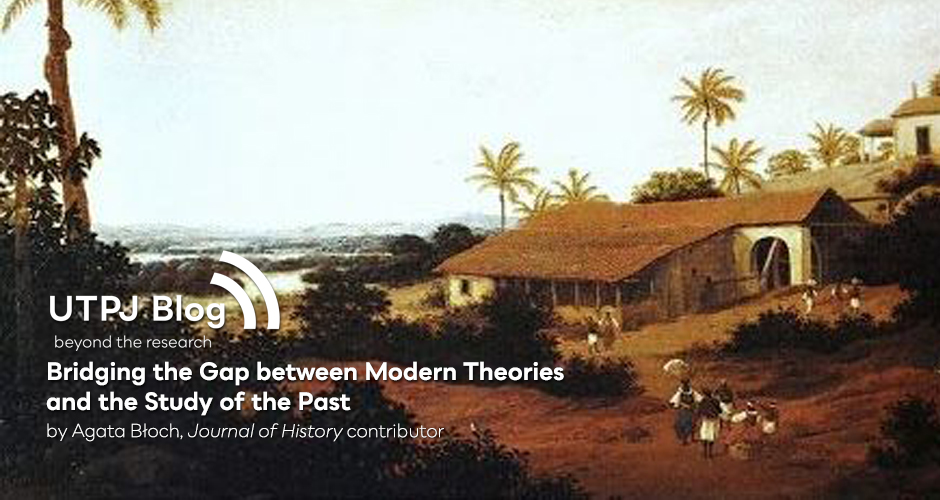
Written by guest blogger Agata Bloch
“The ‘Miserable Vassals’ of the Empire: The Androgynous Codes of Behaviour of Black and Indigenous Peoples in Late Colonial Brazil (1775-1808)” is my research article that offers an exploration of colonial history with a focus on the application of modern gender concepts. I originally intended to examine the role of subaltern women and men in Brazilian colonial society through a combination of theoretical analysis and methodological inquiry. However, as the research progressed, I broadened my perspective to include a more comprehensive examination of gender dynamics in colonial history that goes beyond what was expected to be feminine or masculine.
In my investigation, I came across the fascinating idea of “androgyny” coined by Sandra Bem in the 1970s. This concept states that androgynous people have the special ability to effectively express both feminine and masculine characteristics, resulting in better performance on both gender scales.
This research raises an urgent question: Can we responsibly apply contemporary ideas to distant historical periods? As historians, we must exercise caution to avoid interpretations that impose our modern views on the past, especially with regard to the complex concept of gender. Nonetheless, this research has inspired me to think about how people saw themselves and how their roles differed from the prevailing norms of their time.
As I delved deeper into the handwritten petitions of Indigenous and Black communities in eighteenth-century Brazil, I made a remarkable discovery: these communities represented themselves in ways that deviated significantly from the expectations of colonial patriarchal society. Those subalterns who often labeled themselves with ungendered terms such as “miserable” and assumed the role of “vassals”, paradoxically proved to be more effective in their negotiation endeavors.
But how can we objectively evaluate this deviation from social norms? To answer this question, we used digital software tools to analyze not only the subtleties of their language and behavioral codes, but also to gain statistical insights into these divergence.
With this study, I want to emphasize the role that historians play in adopting contemporary concepts and using the vast arsenal of digital tools at our disposal. It is a friendly reminder that as historians we need to understand that the spectrum of human experience can be extremely multifaceted and nuanced, extending far beyond the boundaries of historical time periods. In the 21st century, we are fortunate to have access to a wealth of modern theories and readily available tools that allow us to experiment with different approaches. Through these experiments, we seek to gain a deeper understanding of the lives of people in the past, especially those who lacked the vocabulary to articulate their own experiences.
Agata Bloch is an Assistant Professor at the Institute of History of the Polish Academy of Sciences. She holds a PhD in History from the Polish Academy of Sciences (2021) and a Master’s degree in History of the Portuguese Empire from University Nova in Lisbon (2018). She received an international research fellowship from Calouste Gulbenkian in Lisbon (2016-2017). Principal Investigator of the project “The Portuguese overseas identity in the context of social network analysis” funded by the National Science Center of Poland (2018-2021). Principal Investigator of the project “Imperial Commoners of Brazil and West Africa (1640-1822): Global History from a Correspondence Network Perspective” funded by the National Science Center of Poland (2023-2027). Lecturer in Latin American History at the Jagiellonian University in Cracow. Digital Editor of the Routledge Collection “Early Modern Iberian History in Global Contexts: Connexions”. Editor of the review section for Polish books on Latin American history in the Journal of Early American History. Executive Committee of ABRE – Associação dos Brasilianistas na Europa.
“The “Miserable Vassals” of the Empire: The Androgynous Codes of Behaviour of Black and Indigenous Peoples in Late Colonial Brazil (1775–1808)” was published in Journal of History Volume 57, Issue 3 and is Free to Read until January 28th.
Comments on this entry are closed.